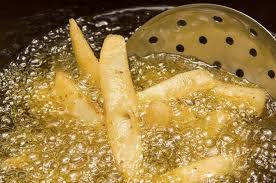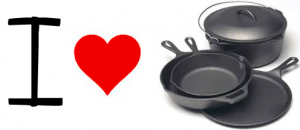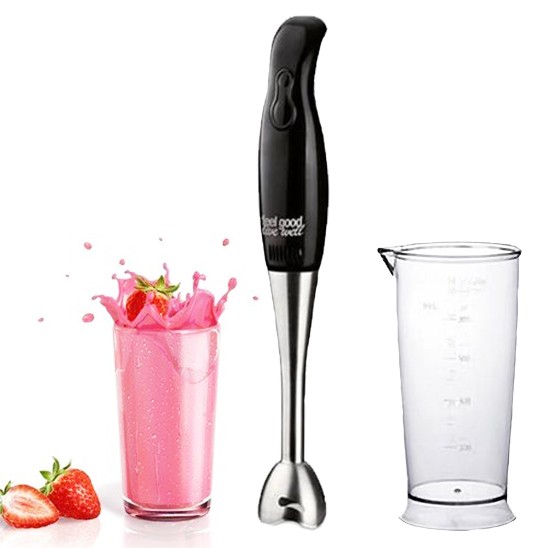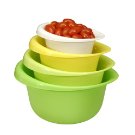 Are you a little confused or torn on what to do with leftover cooking oil? You’re certainly not alone! It always seems like such a waste tossing it after one use. And, pouring it into the trash, no matter how many times you’ve used it, always makes such a mess! Is pouring it down the sink a better option? Can you really reuse cooking oil more than once?
Are you a little confused or torn on what to do with leftover cooking oil? You’re certainly not alone! It always seems like such a waste tossing it after one use. And, pouring it into the trash, no matter how many times you’ve used it, always makes such a mess! Is pouring it down the sink a better option? Can you really reuse cooking oil more than once?
First, let’s start with…
How Many Times Can I Reuse Cooking Oil
The good news is that you can probably reuse cooking oil a few times before having to get rid of it. However, you really should think twice if you want to reuse cooking oil that has been used to fry meat or poultry like fish or chicken wings. Although the high heat from deep frying will likely kill any germs and bacteria, there’s still a chance that these can make you and your family sick. Better to be safe than sorry, no?
On the other hand, you can safely reuse cooking oil that has been used to fry items like french fries and onion rings. These food items are much less likely to harbor dangerous bacteria. A few things to keep in mind when you reuse cooking oil…
- To store and reuse cooking oil, pour it into a resealable container and keep it in the refrigerator. Leftover butter tubs, large peanut butter jars, or glass mason jars work well for this.
- Strain your leftover cooking oil before storing it. Just pour it through a few layers of cheesecloth to remove most of the chunks.
- Wait for the oil to cool completely before storing. Otherwise you risk melting the storage container or raising the temperature in your refrigerator.
- Leftover cooking oil will darken slightly with each use. You can usually reuse cooking oil until it has darkened a few shades.
- Reusing cooking oil lowers the smoke point of the oil each time. If you find that your oil has started to smoke at regular deep frying temperatures, it’s best to discard it. You can help prevent this and get a couple more uses out of the oils by using cooking oils with high smoke points to begin with and not overheating the oils.
- Don’t reuse cooking oil until you’ve given it the “sniff test”. When it gets too old and unusable, leftover cooking oil gets rancid. Luckily, a quick sniff test can detect rancid oil. What does rancid oil smell like, you ask? Trust me…you’ll know!
What NOT To Do With Leftover Cooking Oil
So, you were able to reuse cooking oil a few times and it’s finally past it’s prime. What do you do with your leftover cooking oil now? Well, let’s start with what NOT to do with it…
Never pour leftover cooking oil down any drain! This can potentially wreak havoc on a home plumbing system or septic tank. That goes double for any type of cooking fat that solidifies when it cools. If you poor leftover cooking oil down the drain, you could face costly repairs down the road.
Even if you don’t have problems with your home plumbing from dumping leftover cooking oil down the drains, you could also potentially be impacting the environment. Your used cooking oil could eventually leech into local waterways and soil, with hazardous consequences.
Get Rid of Leftover Cooking Oil
If you can’t dump it down the drain, what can you do with it? Here are a few solutions for getting rid of your leftover cooking oil…
- Many municipalities have programs to dispose of hazardous waste and other similar waste products. You might be able to get rid of leftover cooking oil this way and have it safely disposed of or recycled. Just give your local refuse, waste management, or recycling office a call to see if they offer this service.
- Fast food restaurants frequently need to get rid of leftover cooking oil—LOTS of leftover cooking oil! They typically have a recycling company come pick up the leftover deep fryer oil. If you call them, some restaurants are willing to let you add your leftover cooking oil to their leftovers. It doesn’t hurt to call around and ask.
- Another option is to repurpose leftover cooking oil. This kitchen waste can often be used in place of household lubricants like WD-40, for instance. You can also use it to prevent rust on garden tools, get rid of sticker residue, or make emergency oil lamps.
- If all else fails and you have no other way to recycle or otherwise get rid of leftover cooking oil, the trash may be your only option. To avoid a huge mess at the bottom of your trash can and angry garbage men, don’t pour leftover cooking oil directly into the trash. Instead, seal it in a container, like the one you used to store it in, and place the container into plastic grocery bags. Tie the plastic bags around the container and place it in the trash. Not the most eco-friendly option, but sometimes you’ve got to do what you’ve got to do.






